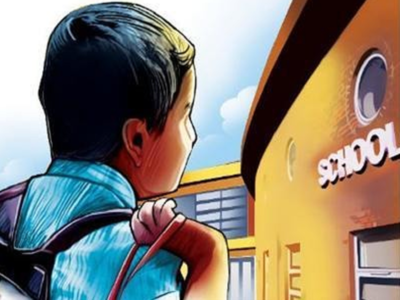- News
- Education News
- News
- 20 upper primary schools in Bijnor to get computers
Trending
This story is from February 14, 2018
20 upper primary schools in Bijnor to get computers
Twenty upper primary schools in Bijnor are set to get computers now, as an amount of Rs 25 lakh has been released for the purpose

Illustration for representational purpose.
BIJNOR: Twenty upper primary schools in Bijnor are set to get computers now, as an amount of Rs 25 lakh has been released for the purpose. According to officials, Wi-Fi facilities will also be provided to the shortlisted schools.
In Bijnor, 120 upper primary schools already have computers. Officials said separate classrooms would be set up in the schools for computer-based learning.Apart from this, CDs of syllabi will also be provided to teachers so they can teach students with the help of computers.
Schools in the district started getting computers since 2022, when the government’s Computer-Aided Learning scheme began. However, most computers have been gathering dust due the lack of facilities like electricity and Wi-Fi. Also, teachers had not been provided with the training required to teach using computers, neither had they been given the CDs. This time, the government is focusing on properly implementing the scheme at a ground level.
Talking to TOI, district coordinator of Sarv Shiksha Abhiyan (SSA) Saleem Beg said, “The government has released an amount of Rs 25 lakh for the next financial year, with which, we will set up computers in 20 shortlisted schools. One computer with three monitors (two of them spares) are to be set up in separate class rooms. By the next financial year, 140 schools will be equipped with computers and Wi Fi or internet.”
A teacher of Chandpur Feru school, Rajendra Singh, said, “The scheme is good but its implementation is not being done properly. First all, teachers have to be trained to operate computers. Secondly, power lapses are a big problem in rural areas. Solar power panels or inverters could be set up in class rooms.”
In Bijnor, 120 upper primary schools already have computers. Officials said separate classrooms would be set up in the schools for computer-based learning.Apart from this, CDs of syllabi will also be provided to teachers so they can teach students with the help of computers.
Schools in the district started getting computers since 2022, when the government’s Computer-Aided Learning scheme began. However, most computers have been gathering dust due the lack of facilities like electricity and Wi-Fi. Also, teachers had not been provided with the training required to teach using computers, neither had they been given the CDs. This time, the government is focusing on properly implementing the scheme at a ground level.
Talking to TOI, district coordinator of Sarv Shiksha Abhiyan (SSA) Saleem Beg said, “The government has released an amount of Rs 25 lakh for the next financial year, with which, we will set up computers in 20 shortlisted schools. One computer with three monitors (two of them spares) are to be set up in separate class rooms. By the next financial year, 140 schools will be equipped with computers and Wi Fi or internet.”
Beg added, “Earlier, we had no CDs with which we could teach students using computers. From the next session, however, we will be provided with CDs of prescribed syllabi.” He also said that there being all of two training centres in the state for teachers (one in Allahabad and the other in Bulandshahar), only a handful of them could be expected to be trained. “To make the scheme more effective, we have decided to get the teachers who are already trained to train the others,” Beg said.
A teacher of Chandpur Feru school, Rajendra Singh, said, “The scheme is good but its implementation is not being done properly. First all, teachers have to be trained to operate computers. Secondly, power lapses are a big problem in rural areas. Solar power panels or inverters could be set up in class rooms.”
End of Article
FOLLOW US ON SOCIAL MEDIA










